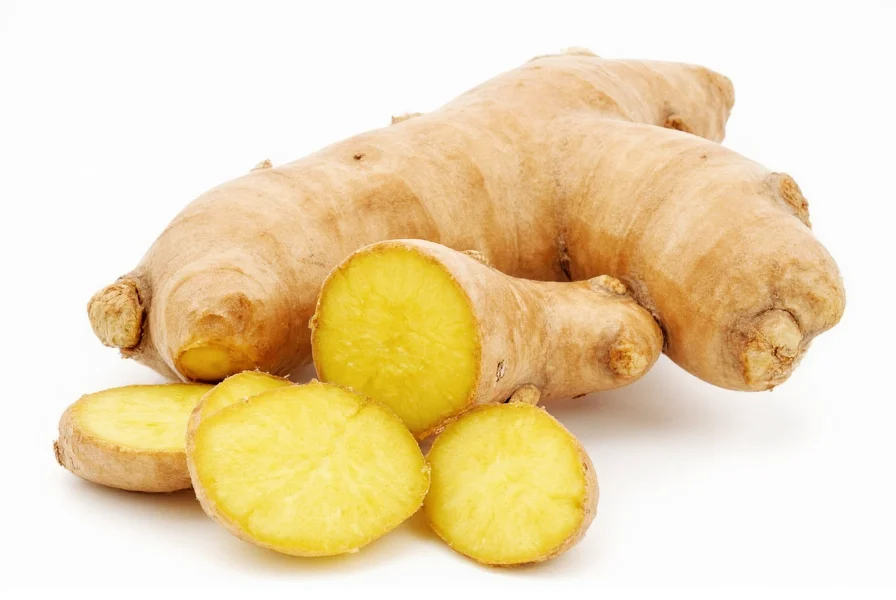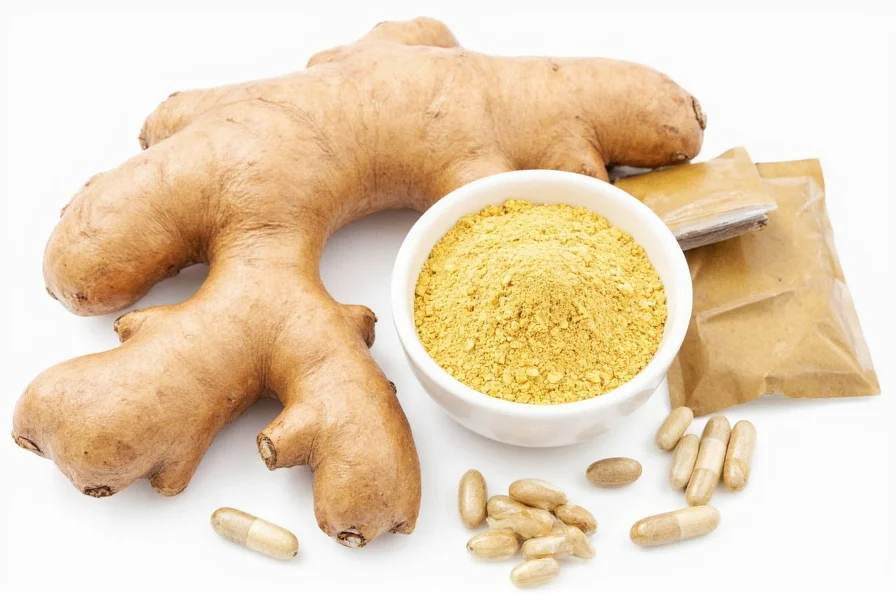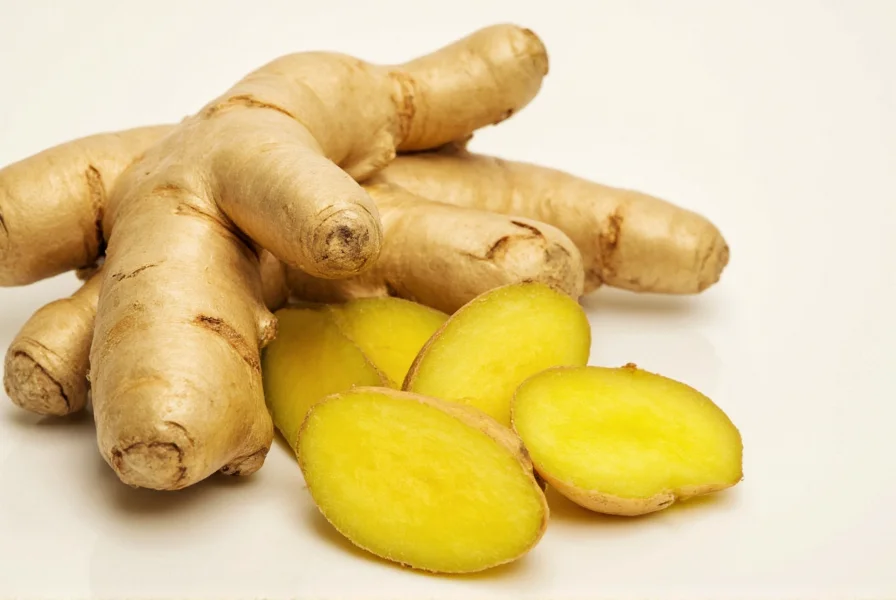Ginger isn't just a kitchen staple—it's one of the most researched herbal remedies with a rich history spanning thousands of years. From ancient Ayurvedic texts to modern clinical trials, this knotted rhizome has earned its place in evidence-based herbal medicine. Unlike many trendy superfoods, ginger's therapeutic benefits are backed by substantial scientific research, particularly for digestive health and inflammation management.
Science-Backed Ginger Herbal Remedies
While traditional medicine systems have utilized ginger for millennia, contemporary research has validated many of its most important applications. The active compounds in ginger, particularly gingerols and shogaols, are responsible for its potent biological effects. These compounds work through multiple pathways in the body, explaining ginger's versatility as a natural remedy.
Digestive Health Applications
One of ginger's most well-documented herbal uses is for digestive issues. Clinical studies consistently show ginger accelerates gastric emptying, which explains its effectiveness against:
- Nausea during pregnancy (morning sickness)
- Post-operative nausea
- Chemotherapy-induced nausea
- Travel sickness and motion sickness
- Functional dyspepsia (chronic indigestion)
A comprehensive review published in the American Journal of Obstetrics and Gynecology found that 1.5 grams of ginger daily significantly reduced pregnancy-related nausea without adverse effects. For motion sickness, taking 1 gram of ginger 30-60 minutes before travel shows measurable improvement in symptoms.
Inflammation and Pain Management
Ginger's anti-inflammatory properties make it valuable for managing chronic pain conditions. Research indicates ginger may reduce pain and stiffness in osteoarthritis patients by 30-40% with regular use. The mechanism appears similar to non-steroidal anti-inflammatory drugs (NSAIDs), but with fewer gastrointestinal side effects.
| Condition | Effective Dosage | Research Support Level | Time to Noticeable Effects |
|---|---|---|---|
| Morning sickness | 1-1.5g daily | High (multiple RCTs) | Within 24-48 hours |
| Osteoarthritis pain | 500mg-1g daily | Moderate-High | 2-4 weeks |
| Post-exercise muscle pain | 2g daily | Moderate | 24-72 hours |
| Menstrual pain | 750mg-2g daily | Moderate | First day of use |
Immune Support and Respiratory Health
Traditional herbal uses of ginger for colds and respiratory infections have some scientific backing. Ginger demonstrates antiviral properties against certain respiratory viruses and may help reduce cough frequency and severity. Its warming properties make ginger tea a popular remedy during cold season, though research specifically on cold prevention remains limited.
When exploring ginger herbal remedies for immune support, combining ginger with other evidence-based botanicals like echinacea may provide synergistic effects, though more research is needed in this specific combination.
Practical Applications of Ginger Herbal Medicine
Understanding how to properly use ginger is crucial for maximizing its benefits. Different preparation methods affect the bioavailability of active compounds and therapeutic outcomes.
Forms of Ginger Herbal Remedies
Ginger herbal uses vary depending on the preparation method:
- Fresh ginger root: Highest in gingerols, ideal for digestive issues
- Dried ginger powder: Higher shogaol content, better for inflammation
- Ginger tea: Gentle preparation suitable for nausea relief
- Standardized extracts: Consistent dosing for therapeutic applications
- Ginger essential oil: Primarily for topical use in pain management

Dosage Guidelines for Ginger Herbal Uses
The appropriate dosage depends on the specific application:
- General wellness: 250-500mg daily
- Nausea relief: 1-1.5g divided doses
- Inflammation management: 500mg-1g twice daily
- Acute pain relief: 1-2g at onset of symptoms
For best results with ginger herbal remedies, consistency matters more than single high doses. Most therapeutic benefits build with regular use over days or weeks, except for nausea relief which often works within hours.
Safety Considerations for Ginger Herbal Medicine
While generally safe, ginger herbal uses come with important considerations:
Potential Side Effects
Ginger is well-tolerated by most people, but some may experience:
- Mild heartburn or gastric irritation
- Mouth or throat irritation
- Rare cases of skin rash with topical use
- Increased bleeding risk at very high doses
Medication Interactions
Ginger may interact with certain medications:
- Anticoagulants (blood thinners) - may increase bleeding risk
- Diabetes medications - may enhance blood sugar lowering effects
- High blood pressure medications - may potentiate effects
Anyone taking prescription medications should consult their healthcare provider before using therapeutic doses of ginger herbal remedies.
Special Populations
Certain groups should exercise caution with ginger herbal uses:
- Pregnant women: Safe for nausea at 1g daily, but avoid high doses near delivery
- Surgery patients: Discontinue 2 weeks before surgery due to bleeding risk
- Gallstone sufferers: May increase bile production, potentially causing discomfort

Integrating Ginger Herbal Remedies into Daily Life
Practical ways to incorporate evidence-based ginger herbal uses:
Simple Ginger Tea Preparation
One of the most accessible ginger herbal remedies is homemade tea:
- Slice 1-2 inches of fresh ginger root
- Simmer in 2 cups water for 15-20 minutes
- Strain and add lemon or honey if desired
- Drink 2-3 times daily for therapeutic effects
Culinary Applications with Therapeutic Benefits
You don't need special preparations to benefit from ginger herbal uses. Incorporating ginger into regular cooking provides consistent low-dose exposure that contributes to long-term health benefits. Try adding freshly grated ginger to stir-fries, smoothies, salad dressings, or baked goods.
Conclusion: Evidence-Based Ginger Herbal Uses
Ginger stands out among herbal remedies for its strong scientific backing, particularly for digestive issues and inflammation management. When exploring ginger herbal uses, focus on evidence-supported applications rather than unsubstantiated claims. The most reliable benefits include nausea relief, digestive support, and modest pain reduction for inflammatory conditions. As with any herbal remedy, consistency, appropriate dosing, and awareness of potential interactions are key to safe and effective use. While not a cure-all, ginger represents one of the most valuable and well-researched tools in the herbal medicine toolkit.
Frequently Asked Questions About Ginger Herbal Uses
What is the most effective way to use ginger for nausea relief?
For nausea relief, 1-1.5 grams of ginger taken 30-60 minutes before the expected onset of symptoms is most effective. This can be consumed as fresh ginger tea, capsules, or crystallized ginger. Studies show ginger works within 30-60 minutes and provides relief for several hours.
How much ginger should I take daily for inflammation?
For inflammation management, research suggests 500mg to 1 gram of ginger extract taken twice daily provides optimal results. It typically takes 2-4 weeks of consistent use to notice significant improvement in inflammatory conditions like osteoarthritis.
Can I use ginger herbal remedies while pregnant?
Yes, ginger is considered safe for pregnancy-related nausea at doses up to 1.5 grams daily. Multiple studies confirm its effectiveness for morning sickness without adverse effects on pregnancy outcomes. However, consult your healthcare provider before use, and avoid high doses, especially near delivery due to potential bleeding risks.
What's the difference between fresh and dried ginger for herbal uses?
Fresh ginger contains higher levels of gingerols, making it better for digestive issues and nausea. Dried ginger has more shogaols (formed during drying), which are more potent for inflammation and pain relief. For therapeutic purposes, choose fresh ginger for digestive applications and dried for inflammatory conditions.
How long does it take for ginger herbal remedies to work?
The timeframe varies by application: nausea relief typically works within 30-60 minutes; menstrual pain relief within the first day; while inflammation and chronic pain benefits build over 2-4 weeks of consistent use. Digestive benefits after meals are usually noticeable within 30 minutes of consumption.











 浙公网安备
33010002000092号
浙公网安备
33010002000092号 浙B2-20120091-4
浙B2-20120091-4